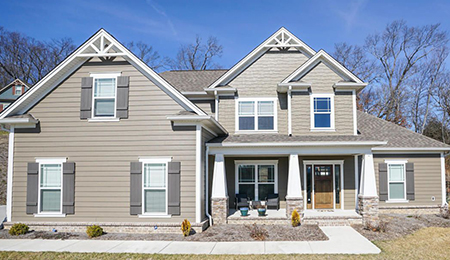It’s natural to for homebuyers to ask questions—a lot of questions, so today I’ll answer some of them to help you gain a little extra confidence as you move forward.
Q. What is the difference between a bank and a mortgage broker?
A. Mortgage brokers might have loan programs that differ from those of a bank and some offer more attractive closing cost options than banks. Conversely, though, a bank might actually be more competitive than some mortgage brokers on both these fronts. It would be wise to check with your bank and any mortgage broker you’re thinking about dealing with for a free estimate of closing costs and interest rates. This way, you’ll be able to make an informed decision that’s best for you.
Q. What do title companies do?
A. Your title company will cover all the paperwork from getting the deed transferred over to all the legal-related document prep to composing a settlement statement explaining the costs you’ll incur. On top of that, they’ll provide you with title insurance on the home; if the home was a foreclosure or estate, this shields the title and you, the homeowner, from any legal recourse if someone were to try to claim rights to the property. Title insurance protects your interests through the lifetime of your ownership of that property.
Q. What types of loan programs are out there?
A. The core set of home loans consists of conventional, FHA, VA, THDA (specific to Tennessee), and a Rural Development program—all of which have varying requirements. For example, a conventional loan will require a larger down payment, whereas the VA, THDA, and the Rural Development are zero-down loan products. When you’re discussing this with your broker or bank, find out which you qualify for and which is most tailored to your situation.
Q. How do we know if the home we’re purchasing qualifies for the loan we’re approved for?
A. It’s important to be aware of the appraisal guidelines built into your loan. FHA and VA loan requirements tend to be a little more stringent with regard to what the home may need; you’ll be in the clear with smaller cosmetic fixes, but if the home is in need of major, structural repair, you won’t qualify for these 100% loan programs. In this event, your options will include a 20%-down conventional loan, a construction loan, or an FHA 203k loan.
Q. Should I have an inspection done on the home?
A. As familiar as you may be with the electrical or plumbing makeup of a home, I always recommend that buyers have the property inspected. There’s only so much the naked eye will tell us about the functionality of a home. However, a home inspector will get down to the nitty gritty—they’ll crawl under the house, go into the attic, and check any and every plug. When it’s all said and done, the inspector’s report will be exhaustive, and they’ll make recommendations for findings that are outside their scope of expertise. In a few words, an inspection will be very worth it in the long run.
If you have questions about today’s topic or anything else real estate-related, please contact us by phone at 423-896-6000 or by email at Sales@SherlinTeam.com. We look forward to hearing from you!



